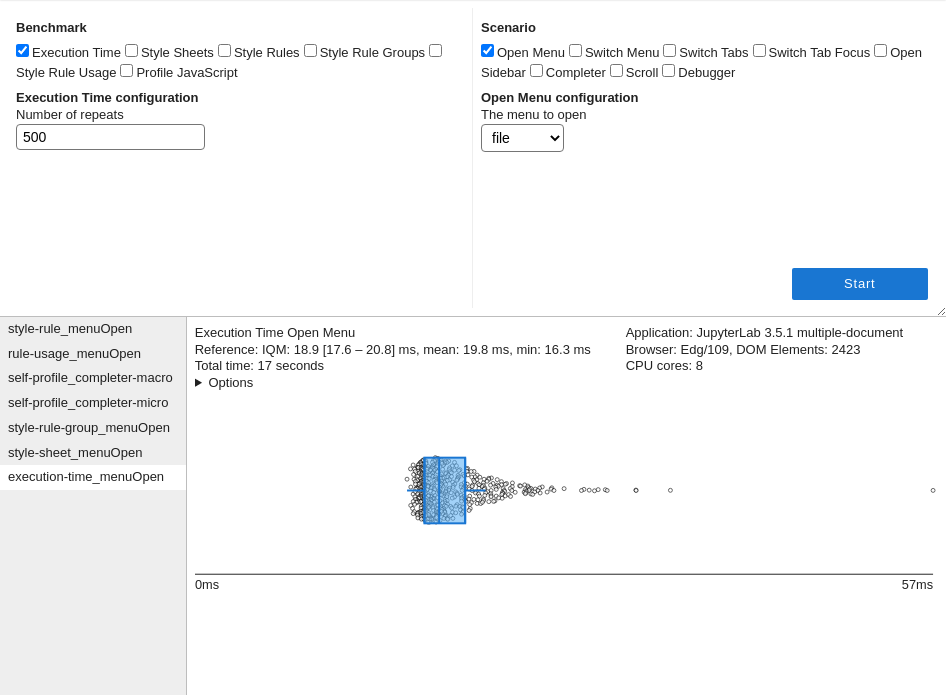JupyterLab extension for profiling UI performance.
You can find more information in our User Guide.
Note: when this extension is enabled, the server will return additional headers:
-
to allow high-precision
performance.now()measurements in Firefox 79+:Cross-Origin-Opener-Policy: same-origin, Cross-Origin-Embedder-Policy: require-corp -
to enable JavaScript self-profiling in Chrome:
Document-Policy: js-profiling
If this is undesirable in your deployment, but you still want to use the profiler without these functions, you can disable the server extension which sets these headers with:
jupyter server extension disable jupyterlab_ui_profiler
- JupyterLab >= 3.0
To install the extension, execute:
pip install jupyterlab-ui-profilerTo remove the extension, execute:
pip uninstall jupyterlab-ui-profilerNote: You will need NodeJS to build the extension package.
The jlpm command is JupyterLab's pinned version of
yarn that is installed with JupyterLab. You may use
yarn or npm in lieu of jlpm below.
# Clone the repo to your local environment
# Change directory to the jupyterlab-ui-profiler directory
# Install package in development mode
pip install -e .
# Link your development version of the extension with JupyterLab
jupyter labextension develop . --overwrite
# Rebuild extension Typescript source after making changes
jlpm buildYou can watch the source directory and run JupyterLab at the same time in different terminals to watch for changes in the extension's source and automatically rebuild the extension.
# Watch the source directory in one terminal, automatically rebuilding when needed
jlpm watch
# Run JupyterLab in another terminal
jupyter labWith the watch command running, every saved change will immediately be built locally and available in your running JupyterLab. Refresh JupyterLab to load the change in your browser (you may need to wait several seconds for the extension to be rebuilt).
By default, the jlpm build command generates the source maps for this extension to make it easier to debug using the browser dev tools. To also generate source maps for the JupyterLab core extensions, you can run the following command:
jupyter lab build --minimize=Falsepip uninstall jupyterlab-ui-profilerIn development mode, you will also need to remove the symlink created by jupyter labextension develop
command. To find its location, you can run jupyter labextension list to figure out where the labextensions
folder is located. Then you can remove the symlink named @jupyterlab/ui-profiler within that folder.
This extension is using Jest for JavaScript code testing.
To execute them, execute:
jlpm
jlpm testThis extension uses Playwright for the integration tests (aka user level tests). More precisely, the JupyterLab helper Galata is used to handle testing the extension in JupyterLab.
More information are provided within the ui-tests README.
To build locally:
make -C docs/ html SPHINXOPTS="-W"
To build in watch mode:
sphinx-autobuild docs/source docs/build/html
See RELEASE
